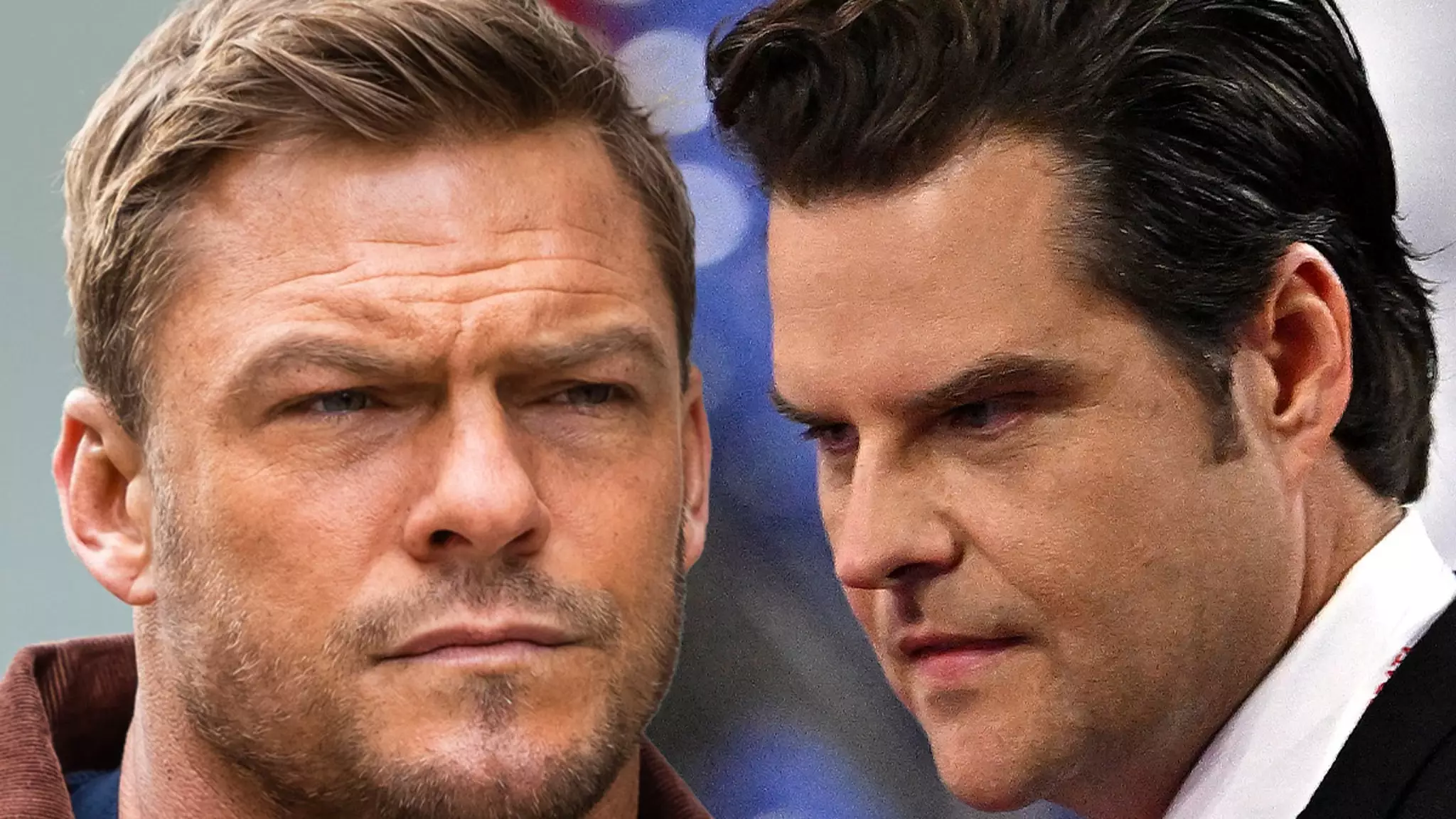Alan Ritchson, known for his role in the action series “Reacher”, has recently made waves by openly expressing his disdain for his childhood acquaintance, former Congressman Matt Gaetz. During a candid interview with GQ, Ritchson unveiled a strikingly personal and emotional perspective on an old classmate from Niceville, Florida. Rather than fondly reminiscing about shared experiences, Ritchson’s comments reflect a significant rift between the two, showcasing how personal relationships can sour when intertwined with public life and political actions.
Ritchson’s colorful language revealed a raw sentiment that many citizens feel toward their elected officials. He categorically labeled Gaetz as “not a good dude,” a phrase loaded with both personal judgment and moral condemnation. This stark choice of words conveys Ritchson’s view of Gaetz not merely as a political adversary, but as a person who has failed to uphold an ethical standard. The actor’s criticism centers on Gaetz’s past actions, including controversial promises he made that have since come under scrutiny. Ritchson’s statement touches on broader themes of accountability and integrity in politics, inviting reflection on how voters perceive and react to their representatives.
Interestingly, Ritchson didn’t shy away from discussing his own flirtation with a potential political career. Despite considering a run against someone like Gaetz, he candidly expressed doubts about his own duplicity, revealing an introspective side that resonates with today’s political climate. This reveals a tension many face: the internal conflict between moral integrity and the often murky ethical standards of politics. Ritchson’s acknowledgment of this struggle serves as a reminder that the desire for change can be stifled by the perceived need for compromise and maneuvering in the political arena.
The interview ventured beyond Ritchson’s rivalry with Gaetz, delving into his personal challenges, including discussions of his past drug use and a poignant suicide attempt. These revelations not only humanize the actor but also shed light on the pressures that accompany fame and public scrutiny. Ritchson’s vulnerability offers an opportunity for dialogue around mental health, particularly among those in high-profile positions, emphasizing that personal battles can often be overshadowed by public personas.
Alan Ritchson’s outspoken criticism of Matt Gaetz serves as a microcosm of the current political landscape, where personal ethics and public behavior are at odds. Ritchson embodies the frustration many feel towards elected officials who stray from their promised path, raising necessary questions about accountability, personal integrity, and the possibility of meaningful change. As more public figures begin to refuse to stay silent on political matters, the discussion initiated by Ritchson could inspire others to voice their concerns, urging a reevaluation of the standards we hold for our leaders. In the end, Ritchson’s words are a clarion call for more authenticity and a departure from the duplicity that often characterizes political discourse today.

